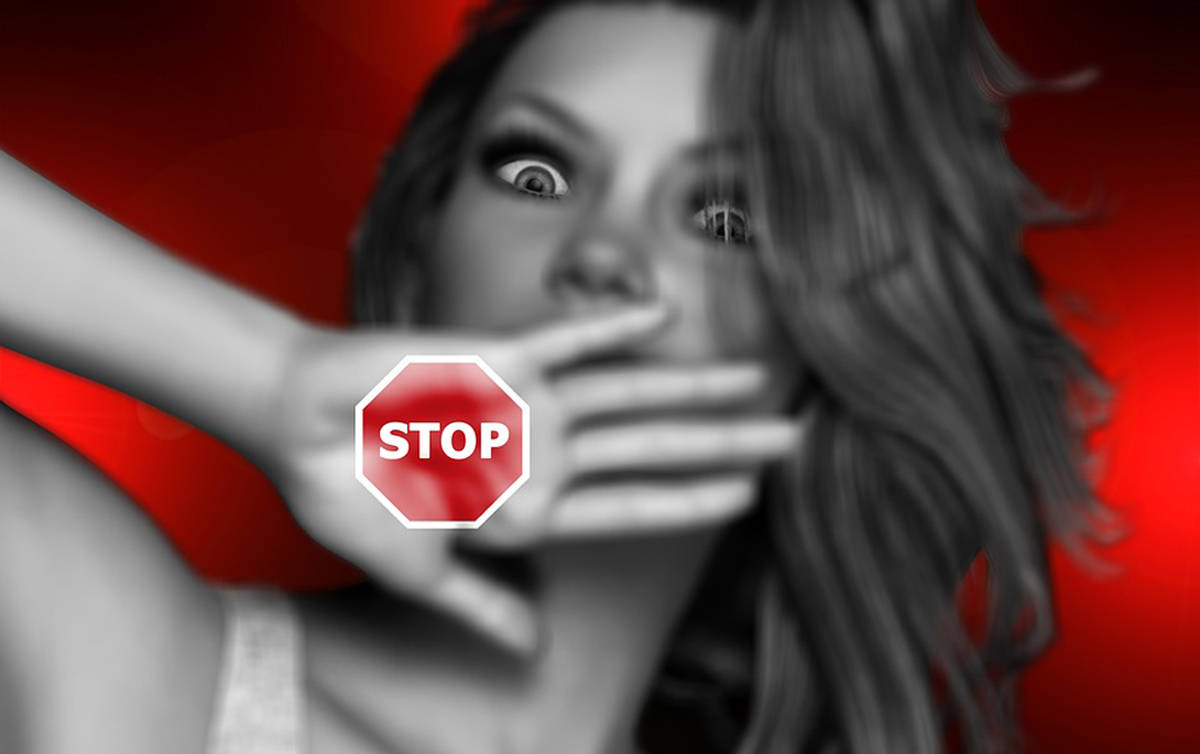 Throughout history, we have learned time and again about the weight of words. Language, stories, and ideas have survived longer than the cultures from which they were conceived. Words have a way of sticking with us, too, long after they’ve been spoken.
Throughout history, we have learned time and again about the weight of words. Language, stories, and ideas have survived longer than the cultures from which they were conceived. Words have a way of sticking with us, too, long after they’ve been spoken.
So it may come as no surprise that the words we choose carry an enormous impact. From how we speak to our friends, family, and coworkers to the words we use to understand certain concepts, those pesky little nouns and adjectives can mean so much and in many cases more than we realize. John Keating once said, “No matter what anybody tells you, words and ideas can change the world.” Sometimes that’s all it takes.
When it comes to domestic violence and sexual assault, the words we use can become very nuanced. It’s a challenge to put the rhetoric for all of the different types of violence and assault under one definitive umbrella. Often, when we speak about these issues, the word “violence” is sometimes interchanged with “abuse.” The reason for this is simple.
Some victims experience domestic violence in ways that don’t cause obvious physical harm. And some may not believe that the assault they experienced was indeed violent. A victim might believe the abuse was their fault. Domestic violence can take many forms, which is why the words we use to describe it should be fluid and adaptive.
The National Coalition Against Domestic Violence categorizes it as such: “Domestic violence is the willful intimidation, physical assault, battery, sexual assault, and/or other abusive behavior as part of a systematic pattern of power and control perpetrated by one intimate partner against another. It includes physical violence, sexual violence, psychological violence, and emotional abuse.”
Domestic violence can be experienced in a multitude of insidious ways. There are not always bruises and cuts to show for it. In many cases, it evolves over time. And unfortunately, violence is rarely ever identified as violence by the victim or by the people around them. Out of love for their abuser, many victims rationalize violence. It can seem easier to compartmentalize or explain away the bad things rather than confront them head on. In cases of domestic violence, it can be downright scary or even life threatening.
The absence of physical violence does not make other kinds of abuse more acceptable. Abuse is violence, plain and simple. Whether that abuse is divvied out as verbal, financial, sexual, or psychological abuse, it’s all violence. This is why victims and survivors of domestic violence are no longer referred to as “battered.” Aside from the negative connotation it places on victims of abuse, it takes the attention away from the individual who perpetrated the violence in the first place: the abuser.
Any major societal shift worth its salt begins with ideas and words to express those ideas. They take hold throughout a community, and as they become incorporated into our lexicon, our culture begins to change. This is how we can intentionally create a community free of domestic violence. By listening to the words we hear from our friends and families, we can be vigilant in helping to identify instances of abuse. We can talk to our kids and loved ones about domestic violence and what constitutes as abusive behavior.
We can end the violence by starting with our words to create awareness, education, and action. The more we know, the more we can recognize abuse when we see it. And when we combine our voices under one common goal, our words can change the way our society responds to domestic violence. If you or someone you know is experiencing abuse, or if you have ever heard a loved one utter the phrase, “But he didn’t hit me,” remember that abuse is abuse, and the words we assign to these issues can mean everything.
To learn more about DOVE’s awareness and prevention programs, visit dovecenter.org. For access to our 24-hour helpline, please call (435) 628-0458.
Articles related to “The words we use: Talking about domestic violence”
Changing our culture by teaching children about domestic violence and sexual assault



